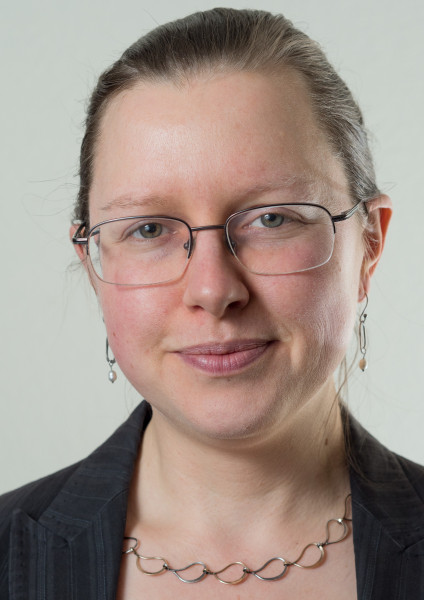Associate Professor (Microbiome Initiative Hire)
About
Office Hours:
As posted and by appointmentRole:
FacultyPosition:
- Associate Professor (Microbiome Initiative Hire)
- Graduate coordinator
- Affiliate faculty, Cell and Molecular Biology program
Concentration:
- Rhetoric and composition
Department:
- Anthropology and Geography and English
Education:
- Post-doctoral fellow, Science, Technology, and Innovation Studies, University of Edinburgh
- Ph.D., science communication, University of Otago
- MA, rhetoric and composition, Washington State University
- MS, microbiology, University of Rochester
Biography
Erika Szymanski studies discourse as a scientific construction tool, human-microbe relations, and multispecies questions raised by contemporary genetic/genomic biotechnologies and microbiome research. Her teaching interests include disciplinary and popular science writing, science communication, science-and-technology studies (STS), environmental humanities, and humanities scholars' roles in interdisciplinary teams. Before coming to CSU, Dr. Szymanski was a research fellow in science and technology studies at the University of Edinburgh working with the synthetic yeast project, an international synthetic biology effort to construct a completely redesigned brewer’s yeast genome. Her articles have been published in journals for diverse audiences including Environmental Humanities, Science Communication, BioSocieties, Written Communication, and Nature Communications. She has also received several awards for her popular wine science writing.
Dr. Szymanski currently leads an NSF CAREER project called microbiomish, about how metaphors shape experimental approaches in microbiome science and possibilities for microbe-human coworking. She is also the US PI on a collaborative UKRI-NSF project called Future Organisms with colleagues in Edinburgh and Tokyo, about responsible research and innovation (RRI), synthetic genomics, and reimagining what "responsible research" means in more-than-human terms. Her other ongoing research involves rethinking metaphors for working with the interdependence of structural and textual information in engineering RNA and exploring the roles of microorganisms in synthetic biology.
Publications
Selected publications
Szymanski, E. (2023). From Terrain to Brain: Forays into the Many Sciences of Wine. Oxford University Press.
Szymanski, E., and Turner, M. (2023). Metaphors as design tools for microbial consortia: An analysis of recent peer-reviewed literature. Microbial Biotechnology.
Turner, M., and Szymanski, E. (2023). Who knows what a microbe is? The variable texture of microbial identity in agricultural products, regulations, and fields. Science and Technology Studies.
Szymanski, E. (2023). Conversations with other-than-human creatures: Unpacking the ambiguity of "with" for multispecies rhetorics. Rhetoric Society Quarterly. doi.org/10.1080/02773945.2022.2095423/
Szymanski, E., and Henriksen, J. (2022). Reconfiguring the challenge of biological complexity as a resource for biodesign. mSphere, https://doi.org/10.1128/msphere.00547-22
Hey, M., & Szymanski, E. (2022). Following the organism to map synthetic genomics. Biotechnology Notes, doi.org/10.1016/j.biotno.2022.07.001.
Tierney, B.T., Szymanski, E., Henriksen, J.R., Kostic, A.D., & Patel, C.J. (2021). Using Cartesian doubt to build a sequencing-based view of microbiology. mSystems, doi.org/10.1128/mSystems00574-21.
Szymanski, E. (2021). Words are essential, but underexamined, research tools for microbes and microbiomes. mSystems, doi.org/10.1128/mSystems.00769-21.
Szymanski, E. (2021).When extracting is not subtracting: Accounting for organism-technologies as stakeholders in microbial resource extraction through an experiment in discursive biomimicry. Science, Technology, & Human Values. https://doi.org/10.1177/01622439211035449
Szymanski, E., Smith. R. D., & Calvert, J. (2021). Responsible research and innovation meets multispecies studies: why RRI needs to be a more-than-human exercise. Journal of Responsible Innovation, https://doi.org/10.1080/23299460.2021.1906040.
Szymanski, E., Bates, T., Cachat, E., Calvert, J., Catts, O., Nelson, L.J., Rosser, S.J., Smith, R.D.J., & Zurr, I. (2020). Crossing Kingdoms: How can art open up new ways of thinking about science? Frontiers in Bioengineering and Biotechnology. doi.org/10.3389/fbioe.2020.00715
Calvert, J., and Szymanski, E. A. (2020). A feeling for the (micro)organism? Yeastiness, organism agnosticism and whole genome synthesis. New Genetics & Society doi.org/10.1080/14636778.2020.1736537
Szymanski, E. A. (2020). Synthesizing yeast in popular media accounts of the Saccharomyces cerevisiae 2.0 project. In Sarah Davies & Ulrike Felt (Eds.), Exploring science communication: A science and technology studies approach. SAGE.
Greenhough, B., … Szymanski, E., & Wills, J. (2020). Setting the agenda for social science research on the human microbiome. Palgrave Communications. doi.org/10.1057/s41599-020-0388-5
Szymanski, E. A., & Scher, E. (2019). Models for DNA design tools: The problem with metaphors is that they don't go away. ACS Synthetic Biology. doi.org/10.1021/acssynbio.9b00302
Szymanski, E.A., Vermeulen, N., & Wong, M. (2019). Yeast: One cell, one reference sequence, many genomes? New Genetics & Society. 38(4), 430-450.
Szymanski, E. A., & Calvert, J. (2018). Designing with living systems in the synthetic yeast project. Nature Communications. doi:10.1038/s41467-018-05332-z
Szymanski, E. A. (2018) Remaking yeast: Metaphors as scientific tools in S. cerevisiae 2.0. BioSocieties. doi:10.1057/s41292-018-0134-z
Szymanski, E. A. (2018). What is the terroir of synthetic yeast? Environmental Humanities, 10(1), 40-62.
Szymanski, E. A. (2018). Who are the users of synthetic DNA? Using metaphors to activate microorganisms at the center of synthetic biology. Life Sciences, Society, and Policy. 14(15). doi:10.1186/s40504-018-0080-3
Szymanski, E.A. (2016). Enacting multiple audiences: Science communication texts and research-industry relationships in the New Zealand wine industry. Science Communication. 38(6), 724-745.
Szymanski, E.A. (2016). Constructing relationships between science and practice in the written science communication of the Washington state wine industry. Written Communication. 33(2), 184-215.
De Olde, E.M., Moller, H., Marchand, F., … Szymanski, E.A.,… & Manhire, J. (2016). When experts disagree: The need to rethink indicator selection for assessing sustainability of agriculture. Environment, Development, and Sustainability. doi:10.1007/s10668-016-9803-x.
Szymanski, E.A. (2016). Extension resource use among Washington State winemakers and growers: A case for focusing on relevance. Journal of Extension. 54(1), 1FEA2.
Szymanski, E.A., & Davis, L. (2015). Wine science in the Wild West: Information-seeking behaviors and attitudes among Washington state winemakers and growers. Journal of Wine Research. 26(4), 270-286.
Szymanski, E.A. (2014). Instructor feedback in upper-division biology courses: Moving from spelling and syntax to scientific discourse. Across the Disciplines. 11(2).
Selected for The Best of the Independent Journals in Rhetoric and Composition 2015, Parlor Press.
Szymanski, E.A. (2013). Synthesis notes: Working with sources to create a first draft. Writing Commons.
